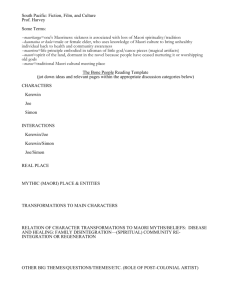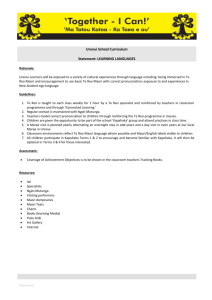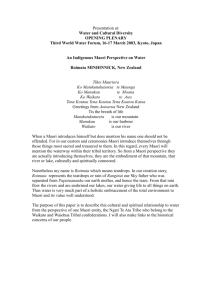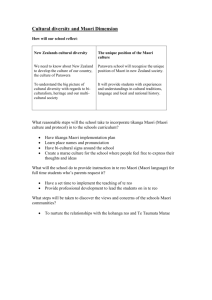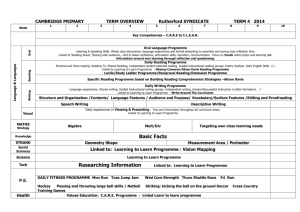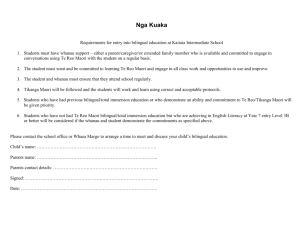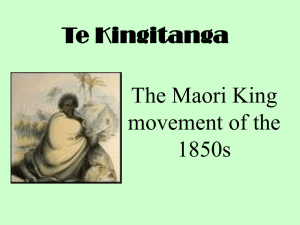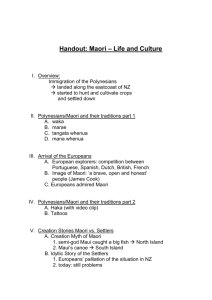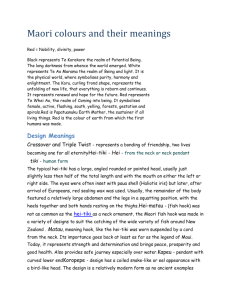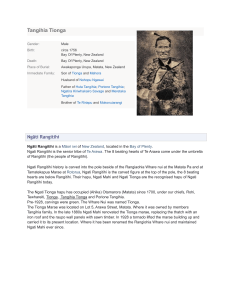Kingitanga - mrmranderson
advertisement
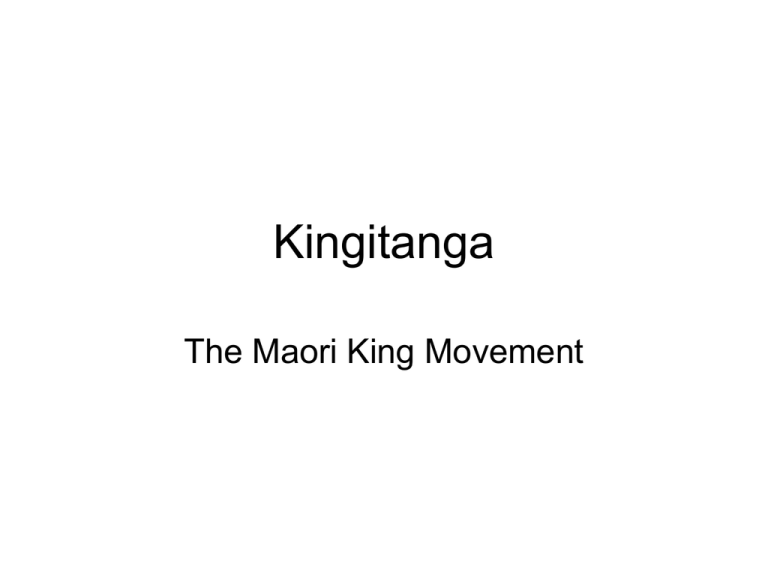
Kingitanga The Maori King Movement Background/Context • TOW Consequences – Legislative violations by governors of the 1840s. • Specifically Governor George Grey – Land acquisitions were sketchy at best • Wellington 1846 – Grey attempted to force Maori to sell supposed ‘waste land’. Brought in 500 troops and plundered Maori possessions despite the fact Ngati Rangatahi were leaving. • Wairau 1847 Make notes as to why these – Ngati Toa sold land that was not theirs. purchases were dodgy from ESA Study Guide 85-87 • Kemp Purchase 1848 – Ngai Tahu believed they were only selling the plains, but it included all the foothills and mountains. Background/Context • 1852 Constitution – Lost protection of the Governor, which was part of the reason Maori signed the treaty in the first place. – Franchise was based on individual land title, effectively excluding Maori and setting up a settler government for settler purposes. Background/Context • So the result… – Holy shit we gotta protect ourselves man, we gotta be one against the white man. Kingitanga • A movement arose in the 1850s to establish a Maori king to protect Maori land from alienation and to make laws to end internal strife. Matene Te Whiwhi travelled throughout New Zealand seeking a chief of high standing who was willing to be king. Iwikau Te Heuheu Tukino III, of Ngati Tuwharetoa, suggested that Te Wherowhero should be approached, and his choice was supported by Wiremu (the Kingmaker) Tamihana, of Ngati Haua. • Te Wherowhero was reluctant to take on the role of peacemaker while the death of one of his relatives, Rangianewa, at the hands of Ngati Haua in 1825, was unavenged. Peace was made, however, and after lengthy negotiations Te Wherowhero accepted the kingship, and was installed at Ngaruawahia in 1858. • In his speech of acceptance he stressed the spirit of unity symbolised by the kingship, likening his position to the 'eye of the needle through which the white, black and red threads must pass.' He enjoined his people to 'hold fast to love, to the law, and to faith in God.' Te Wherowhero (Potatau) • Te Wherowhero never regarded the kingship as being in opposition to the sovereignty of Queen Victoria, and wanted to work co-operatively with the government. Some of his associates, however, sought to prevent or hinder government activities in areas which supported the King. • He died in 1860 and was succeeded by his son, Matutaera (Tawhiao). Te Wherowhero, Te Waru and Te Pakaru The Kingite Challenge • The King Movement threatened the principal of Empire in two ways. First the King would unite the tribes, and their disunity was their greatest weakness. • It had allowed the Europeans to establish themselves in settlements and to move inland. • Secondly by prohibiting the sale of land he inhibited the European ability to take land they believed belonged to them. • It also threatened the Governors ability to raise revenue as land was bought cheaply and sold at a good profit to the settlers.

